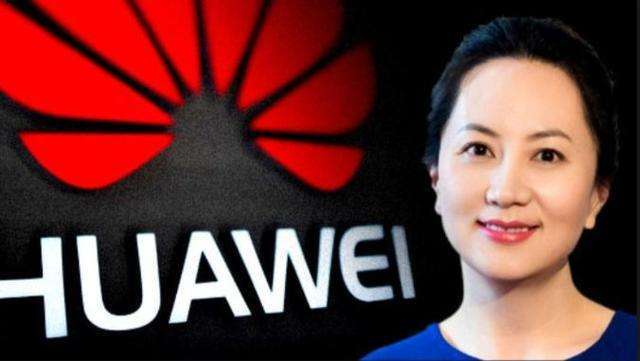Huawei CFO Meng Wanzhou is currently fighting extradition from Canada to the US to face charges of bank fraud in connection with transactions undertaken by Huawei in Iran allegedly in violation of US sanctions. The case has attracted global attention and the final commitment hearings will be held soon. Robert Lewis, Senior International Consultant with Chance Bridge Partners in Beijing, recently published an in-depth analysis of the Meng case. IHC interviewed Lewis to learn more.
This is a highly detailed look at the Meng case. Why did you write it and who is your intended audience?
As I followed the progress of the case, I realised that most reports were piecemeal in nature and scope and for the most part written from a journalistic perspective. With the key hearings in the extradition case scheduled for April and May, it was timely to provide a more comprehensive overview as a backdrop against which the upcoming court rulings could be better understood. I also wanted to approach this from a more professional legal perspective for a professional audience, including in-house counsel and compliance officers.
For people who have not followed this case closely, how did the case arise and what is the status?
This is a complex case but the simple answer is as follows: Meng is the chief financial officer of Huawei and the daughter of Huawei founder Ren Zhenfei. Meng and Huawei are alleged, among other charges, to have committed bank fraud in connection with communications with HSBC in August 2013 in a meeting in a private room at the back of a restaurant in Hong Kong. The meeting was set up to clarify concerns on the part of the bank regarding two Reuters reports about Huawei’s activities in Iran which may have been in violation of US sanctions against Iran and which could have triggered certain legal obligations on the part of HSBC. She was arrested more than five years later in the Vancouver airport as she transited to her connecting flight to Mexico, ironically just as then-US president Donald Trump was sitting down to a private dinner with Chinese president Xi Jinping at the G20 summit in Argentina.
Meng has won some small but important victories during the proceedings but most extradition requests are ultimately granted so the bar is high for her in this extradition fight. The Wall Street Journal reported in December that US prosecutors had been quietly talking with Meng’s lawyers about a plea deal, but no further progress has been reported. If extradition is granted then she is expected to lodge an appeal and ultimately Canada’s Minister of Justice will make the call whether to order her extradition. The entire process could drag out a couple of more years.
How do most Chinese people view Meng’s arrest?
Unsurprisingly, her arrest sparked a huge outcry in China. It is seen as an attempt on the part of the US and other Western countries to contain the growth of Huawei as part of a larger campaign to keep China down. All the actions taken by the Trump administration last year against software companies WeChat and TikTok are also commonly seen as part of that same effort. Many Chinese feel they are being unfairly targeted and Meng’s arrest is the most personal example since she is a such a high-profile business executive.
Almost everyone in China believes Trump orchestrated or at a minimum acquiesced in the timing of Meng’s arrest to put maximum pressure on China as part of the planned trade negotiations. However, by many accounts, Trump was out of the loop and this action apparently was taken independently by career officials at the US Justice Department.
What is the basis for US authorities to assert jurisdiction against Meng? She is a Chinese citizen, Huawei is a Chinese company, HSBC is a global bank, the meeting in question was in Hong Kong and the communications were about Huawei’s activities in Iran. What’s the US connection?
The transactions at issue were denominated in US dollars so the related payments typically would be cleared through the US banking system. That alone is enough for US authorities to assert jurisdiction and to require non-US companies to comply with US sanctions against Iran and other countries. It’s an extremely aggressive position, which is unpopular with US allies and rivals alike. It leverages the dominance of the US dollar as a global currency. Since most international transactions are denominated in US dollars, and banks conducting US dollar business have reporting obligations with respect to restricted payments, virtually any US dollar transaction in the world could give rise to US assertion of jurisdiction over the transaction and the parties involved. That will continue to be the case so long as the US dollar remains dominant. This could be one of many reasons international companies may in coming years welcome using the euro or even the yuan as a settlement currency for international transactions.
Why did it take more than five years after the original Hong Kong meeting before she was charged and arrested? What happened between then to trigger an arrest?
This is where the story gets interesting. The case against Huawei and Meng can only be understood in the context of the prior prosecution of HSBC for its own egregious violations of US sanctions against Iran and other countries. These resulted in HSBC paying nearly $US2 billion in fines, being required to fire numerous senior executives in the global management team and putting in place a court-appointed independent compliance manager. HSBC was able to negotiate a deferred prosecution agreement (DPA), and so long as the bank complied with the terms of thereof over the five-year term, the original charges would be dismissed.
The two Reuters reports about Huawei’s activities in Iran that triggered the inquiries came just a few weeks after HSBC signed the DPA, so the bank was already on high alert to potential problems of this type. Eventually, HSBC made its enquiries and decided to maintain the banking relationship with Huawei.
Things remained status quo ante until September 2016, when US prosecutors considered bringing a separate set of criminal charges against HSBC for foreign exchange trading violations. This allowed US federal prosecutors, who were already looking into Huawei, to exert pressure on HSBC to conduct a more thorough internal investigation of its relationship with Huawei, which produced the information on which the case against Huawei and Meng is based.
This is a complex case involving not only allegations of criminal law violations and extradition but also geopolitical relations. Can you provide some additional context?
As most IHC members will be aware, ten days after Meng’s arrest China detained two Canadian citizens, Michael Kovrig, a former diplomat, and Michael Spavor, a businessman. The pair (known in Canada as the “two Michaels”) were later charged with “spying on national secrets” and providing intelligence for “outside entities.” Canada protested that the arrest was done in retaliation for Meng’s arrest, but China has denied any connection between the two cases. China recently announced that the trial of the two Michael’s would commence soon.
Many Canadians want the charges against Meng dropped in exchange for the release of the two Michaels. John McCallum, who at the time served as Canada’s ambassador to China, expressed similar sentiments not long after the arrests, even offering a critique of the extradition case against Meng, for which he was promptly sacked.
The transition in the US from the Trump administration to the Biden administration has also presented some complications. Meng’s lawyers, relying on the doctrine of “double criminality,” challenged the extradition case on the grounds that Canada had no sanctions in place against Iran. The Canadian court rejected that argument, but the Biden administration is expected to remove some sanctions against Iran, which raises the question of if Meng’s case will be prosecuted with the same level vigour.
Corporate criminal actions generally result only in monetary penalties on the company, so in this case, why was Meng charged in her personal capacity?
This is one point of considerable consternation for many in China. In the HSBC case, arguably involving much more egregious violations of US sanctions laws, no one went to jail, so many have asked the same question: why was Meng singled out? This appears to be a matter of prosecutorial discretion which is heavily fact-dependent. If lower-level management personnel or other employees, acting on behalf of the company, violate applicable laws then the company can bear criminal liability under the doctrine of respondeat superior. But the senior executives of the company will not necessarily be charged personally. In Meng’s case, US prosecutors stated she was charged in a personal capacity due to her direct personal involvement.
What can we learn from this case about compliance management in Chinese companies?
Major Chinese companies have had compliance management systems in place for years, but in many cases it consisted mostly of a policy document posted on the company’s website and in practice was not always implemented in full. With the arrest of Meng Wanzhou, the attitude towards compliance among Chinese companies has undergone a complete sea change. This has been a “wake up” call, and many observers now see much more rigorous systems in place in Chinese financial institutions and overseas listed companies.
One thing that surprised me was that the criminal and administrative liability exposure of Chinese companies internationally is not necessarily disproportionate to the position of China as the world’s second-largest economy. In fact, Chinese companies do not even make the list of the top corporate offenders globally. That dubious distinction goes to the biggest name brand companies in the US and Europe.
What lessons do you hope our IHC members will take away from this case study?
The number one take-away is to be aware of the long reach of US authorities and that if you are engaging in US dollar-denominated transactions then assume your bank, or its US correspondent bank, will have reporting obligations.
It is also important to avoid workarounds and if questioned by authorities, it is critical to cooperate and be fully transparent. As detailed in my case study, ZTE tried to be a bit too clever in structuring its deals in Iran and North Korea and when confronted tried to cover it up. That only led to more severe penalties.
Finally, every company needs robust compliance management systems that are rigorously enforced. You must have clear rules that are consistently implemented and if violations are discovered, appropriate action must be taken. It is more than a simple “paper policy.” It must be part of the DNA of the company.
Robert Lewis has worked in top US, UK and Chinese law firms in China for almost 30 years and was the first senior foreign lawyer to move from an international law firm to a top Chinese law firm. He has advised Chinese companies on outbound investments globally and assisted leading Chinese companies with designing compliance management systems. His four-part case study on the Meng Wanzhou case is available in English and Chinese. See https://www.chancebridge.com/en/zhuoweiresearch2.html (English) or https://www.chancebridge.com/research.html (Chinese) for details.



